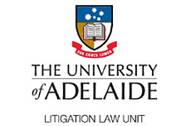


会议筹委会在此谨代表主办方和赞助方,诚挚地邀请您于2015年7月20-23日出席于澳大利亚阿德莱德市举行的第五届证据理论与科学国际研讨会。
第五届证据理论与科学国际研讨会的举办地点将首次离开中国北京,此举标志着本研讨会在吸引跨学科和国际参会者方面取得了突破性进展。
第五届国际研讨会将通过探讨证据法学与法庭科学改革的交汇点,审视当代诉讼中的证明问题。大会议程将延续证据理论与科学国际研讨会的一贯传统——在证据法学和法庭科学之间进行充分交流。此外,随着本研讨会国际影响力的日益攀升,有关政治学和文化研究方面的讲演也在我们邀请之列。
活动内容
会前研习班 2015年7月20-21日
大会议程 2015年7月22-23日
本届大会将于澳大利亚阿德莱德大学举行,会期安排两天大会和分组讲演,讲演者将受邀对证据法学和法庭科学领域的发展与改革问题进行批判和反思。同时,我们也诚挚地邀请参会者提交以证据科学领域改革中的问题为主题的论文,包括但不限于以下论题:
1.证明在司法中的性质和目的,调查、审判、上诉和审查程序中为证明所设置的法律标准和要求。
2.证据法在发达国家和发展中国家变革的基础和指导原则。
3.科学、道德、文化、宗教和政治价值观在司法证明中的作用和影响。
4.确保在调查期间可靠应用法庭科学证据的程序。
5.确保在审判程序中可靠应用法庭科学证据的程序,如保障透明度,制定可采性严格标准,允许法庭自主聘请专家,以及对有罪判决的上诉。
6.法庭科学特定领域中的问题与发展,如DNA证据,指纹证据和认知科学。
7.法庭科学的范围和可靠性及其在司法中的地位和影响。
8.法庭科学在审判程序中的表述以及在案件事实认定中法庭科学证据与其他证据的结合。
提交论文的主题不限于上述所列范畴,只要与本次大会的主旨相关即可。
第五届证据理论与科学国际研讨会的分组讨论,将考虑来自不同学科的发言人,以促进不同学科之间的交流。
会议论文
论文一律用英文撰写,注释格式参见附件:会议论文注释格式。
提交论文的截至时间:2015年4月30日。
所有提交的论文将通过专家匿名评审的方式确定正式参会者。参会者的正式邀请函将于2015年6月1日前发出。
”2011计划“司法文明协同创新中心,将从中方参会者中选出30篇左右的优秀论文给予会议注册费和国际旅费方面的资助。
第五届证据理论与科学国际研讨会的活动安排,将以为期两天的系列研习班为开端,为与会代表们提供机会访问南澳大利亚司法机构——包括警察局、法院、法庭科学实验室、法律改革机构等——参会代表可与这些机构的专业人士和研究人员面对面进行直接交流。
第五届证据理论与科学国际研讨会大会主题发言人——来自法学、科学、政治学和文化研究领域的卓越国际人士及澳大利亚司法领域专业人士和研究者——一经确定后即予以公布。有关会前研习班和本次大会的完整议程将于我们收到所有论文后予以公布。
注册
有关注册事宜,请访问本次大会网址:http://www.law.adelaide.edu.au/icelfs/
会前研习班和本次大会议程可分开进行注册。注册费含每日茶歇和午餐。我们诚邀您预定与我们合作的酒店,尊享为本届大会所专设的优惠住宿价格。
为鼓励中国证据法学与法庭科学领域专家学者积极参加本届大会,筹委会特意为参会中国代表准备了会议注册费专享折扣代码。相关详情请与大会秘书处联系。
在您注册之后,请时常返回登录网站,我们会定期更新有关会前研习班、大会议程和大会主题发言人的最新信息。
如需任何查询,请联络大会秘书处:icelfs5@adelaide.edu.au。
我们诚挚期盼能在2015年7月迎接您的到来。欢迎访问澳大利亚阿德莱德市!
执行筹委会
罗纳德•J•艾伦教授(美国西北大学法学院)
张保生教授(中国政法大学)
大卫•卡鲁索先生(澳大利亚阿德莱德大学法学院)
安德鲁•立格特伍德荣休教授(澳大利亚阿德莱德大学法学院)
汪诸豪讲师(中国政法大学)
约翰•威廉姆斯教授(澳大利亚阿德莱德大学法学院)
附件:会议论文摘要及注释格式
CONCEPTUAL CHALLENGE OF EXPERT TESTIMONY
Ronald J. Allen*
【Abstract】 The relationship between expert knowledge and the trial pattern is examined. In general, trials are educational events in which the fact finder is expected to comprehend, process, and reflect on the evidence, and to reach rational conclusions as a result. This process reflects the fundamental importance of the accuracy of fact finding at trial, without which rights and obligations are essentially meaningless. Expert evidence often involves a deferential rather than an educational mode of proceeding and to that extent can be in opposition to the normal aspirations of trials. This article discusses the development process, forming reason and its consequences. The alternative is advanced that all evidence should be presented in an educational mode if the aspirations of trials are to be realized. If evidence cannot be presented in such a pattern, then the matter to which the evidence is pertinent plausibly cannot be litigated consistent with the normal aspirations of trials.
【Key Words】 expert testimony, factual accuracy, deferential mode, educational mode, aspirations of trials
It is a great pleasure each time I return to China to see my many students and how well they are doing. As I will discuss later in this paper, those of you studying evidence and procedure are critical to the continued progress of your country. My lecture tonight involves the conceptual challenge of expert testimony. This is important in its own right, because you cannot decide how to use expert testimony without understanding the difficulties that it poses, but that in turn means you must think about the nature of the legal system and how expert testimony advances or challenges the deepest aspirations you should hold for your legal system. The challenge will be to address all these issues in a systematic way, so let us begin.
The law of all countries of which I am aware contains relatively complex taxonomies of the types of information that conceivably may be pertinent to the resolution of a legal dispute. For example, American evidence law refers to scientific, technical and other specialized knowledge.1 The Federal Rules of Evidence, compounding the complexity, go on to specify various ways in which a person might become an expert, which involves the acquisition in any manner of “knowledge, skill, experience, training, or education” that
*Ronald J. Allen:John Henry Wigmore Professor of Law, Northwestern University, President, Board of Foreign Advisors, Evidence Law and Forensic Sciences Institute, Fellow, Procedural Law Research Center, CUPL. I am indebted to Jiang Yujia, a law student at Northwestern University, for her research assistance.
1Federal Rules of Evidence (FRE) 702.

